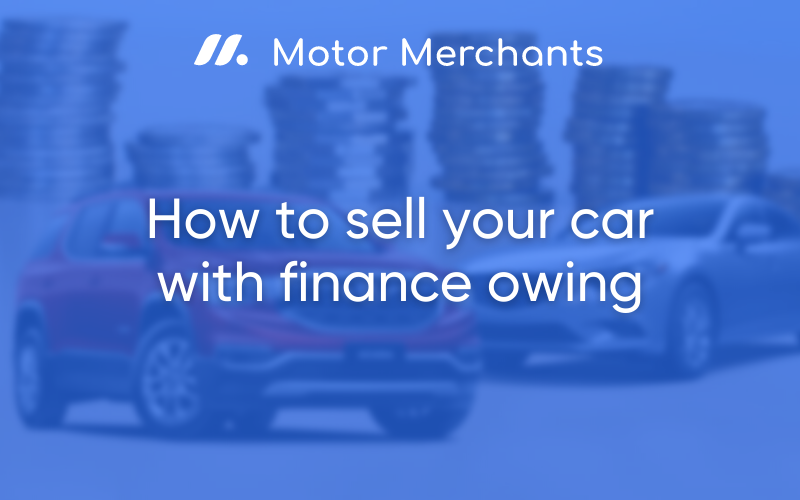How to sell a car with finance owing
How to legally sell a car with encumbrance anywhere in Australia.

Car loans are the most commonly used method of vehicle financing in Australia, enabling millions of Australians to own and drive a vehicle. Still, it can be complicated to go on and sell a car if the loan hasn't been fully paid off. This guide will let you know what to consider when selling a car still under finance.
"Under finance"? What's that?
A vehicle that is "under finance" is one in which the owner has purchased a car with a car loan. A secured car loan, for example, is one in which the vehicle you're purchasing is pledged as collateral to secure the loan.
Secured car loans are the most common type of auto loan, which means that if you do not make your payments and default on your loan, the lender can repossess and subsequently sell your automobile.
If you fully pay off your loan, the lender will no longer be able to repossess and sell it as you fully own the vehicle. It's also simpler to sell a car if you've entirely paid off your debt because potential buyers can be hesitant to buy a car that is still 'under finance.'
__Is your vehicle under finance?
A vehicle ‘under finance' or encumbered means you still owe money for the car loan. For example, if you took out a $60,000 car loan and after three years of monthly payments still owe $20,000, that car would be encumbered to the sum of $20,000. You don't own all of that car yet and still have another $20,000 to pay before it is fully owned by you.
If you decide to sell a car that still has finance owing on it, you'll face issues on all three sides between the lender, buyer, and you, the seller: as the vehicle is changing hands, but the vehicle financing remains in your name. If you stop paying the loan, the lender must pursue it from the new owner.
__Is it illegal to sell an encumbered vehicle?
The answer is no. It's 100% legal to sell an encumbered car, and the majority of lending authorities will not have a problem with you doing so. Typically, what would happen is that the funds received during the sale of the vehicle will be used to pay off the remaining loan balance.
For example, selling that $60,000 car for $38,000 a few years down the line, you'd have to spend part of that revenue to pay off your pending $20,000 loan balance.
__How does selling a car under finance work?
If you choose to sell your vehicle, be sure to tell the lender how you'll pay off the loan before you do so. If you've sold your car before the term of your loan has ended (particularly if still owing money on it), you may be charged an early repayment fee or a break fee.
When buyers are aware that a car is financed, they are less likely to buy it. However, this information must be disclosed to them ahead of time. This implies that you may not be able to receive the highest possible sale price for the automobile on the private market.
__How to check if a car has finance owing
If you want to double-check whether you still owe money on your car loan, you can ask your lender or car dealer. Lenders and car dealers may choose to charge you fees for this.
You can also do a PPSR check to see whether you still owe money on your car loan online for a fee of $2 at ppsr.gov.au.
PPSR checks are also helpful if you're planning to buy a used car, to check if it's still encumbered.
__Maintain and improve your car condition to maximise the sale value
If your vehicle is encumbered but you wish to sell it in order to buy a new one, it is in your best interest to maximise the resale value of your car.
Depreciation costs for cars immediately come into effect once a new vehicle leaves the showroom floor, with depreciation typically resulting in over 30% of the vehicle value being lost in just three years.
To maximise the resale value, you can:
- Frequently service your vehicle: A well documented service history book is guaranteed to increase your resale value.
- Replace the tyres: New tyres instead of worn tyres can make the sale more appealing for the buyer.
- Fix any superficial damage: Chips, scratches, dents, and cracks all need to be repaired if you expect a buyer to look over your vehicle and offer a reasonable price, a damaged car will sell for well below the market average.